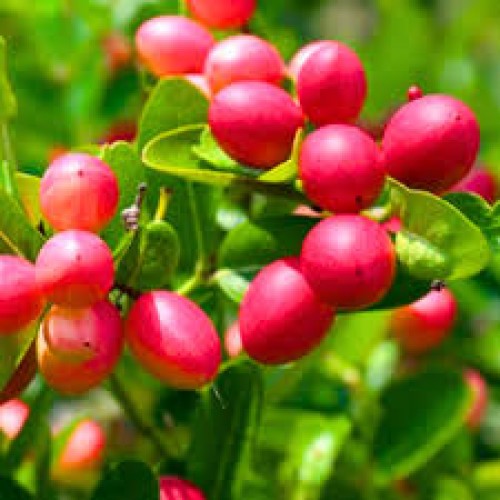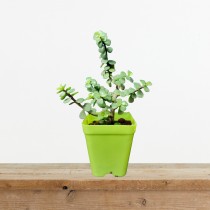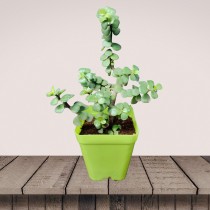off
-
Sold
-

out
Karonda Plant: Nature, Care & Advantages
Karonda (Botanical name: Carissa carandas) is a hardy, evergreen shrub or small tree native to India. It is known for its sour fruits that are rich in iron and often used in pickles, chutneys, and preserves. The plant is drought-resistant and thrives even in poor soil conditions, making it an excellent choice for dry regions.
Nature of the Karonda Plant
Karonda is a thorny, bushy plant that can grow up to 2–4 meters tall. It has dark green, glossy leaves and produces small, white, fragrant flowers. The fruits are berry-like, initially green, turning pink, purple, or black upon ripening. The plant is tough, adaptable, and can also be used as a protective hedge due to its dense, thorny growth.
Care for the Karonda Plant
- Climate: Thrives in hot, dry climates and is highly drought-tolerant. It can survive high temperatures and poor rainfall conditions.
- Soil: Grows well in sandy, loamy, or rocky soils with good drainage. Tolerates slightly acidic to neutral pH levels.
- Watering: Requires minimal watering once established. During initial growth, water regularly until the roots develop.
- Sunlight: Prefers full sunlight for optimal growth and fruit production.
- Fertilization: Apply compost or organic manure once or twice a year to enhance growth and fruiting.
- Pruning: Prune to maintain shape and remove dead branches. Also useful in shaping the plant if used as a hedge.
- Pests & Diseases: Generally pest-free and disease-resistant, making it low maintenance.
Advantages of Growing Karonda
- Nutritional Value: Karonda fruits are rich in iron, vitamin C, and antioxidants, helping boost immunity and prevent anemia.
- Medicinal Uses: Used in Ayurvedic medicine for treating fever, digestive issues, and skin problems.
- Low Maintenance: Requires little water, fertilizer, or care once established.
- Culinary Uses: Fruits are used to make pickles, jellies, chutneys, and traditional Indian sweets.
- Natural Barrier: Ideal for hedges and fencing due to its thorny, dense growth and drought resistance.
- Suitable for Dry Areas: A perfect crop for arid and semi-arid regions with minimal irrigation needs.
Conclusion
The Karonda plant is a resilient, multipurpose shrub that offers a variety of health, culinary, and ecological benefits. Its ease of care and high adaptability make it ideal for home gardens, farm borders, and dryland farming. A valuable addition for those looking to grow useful, low-maintenance fruiting plants.

